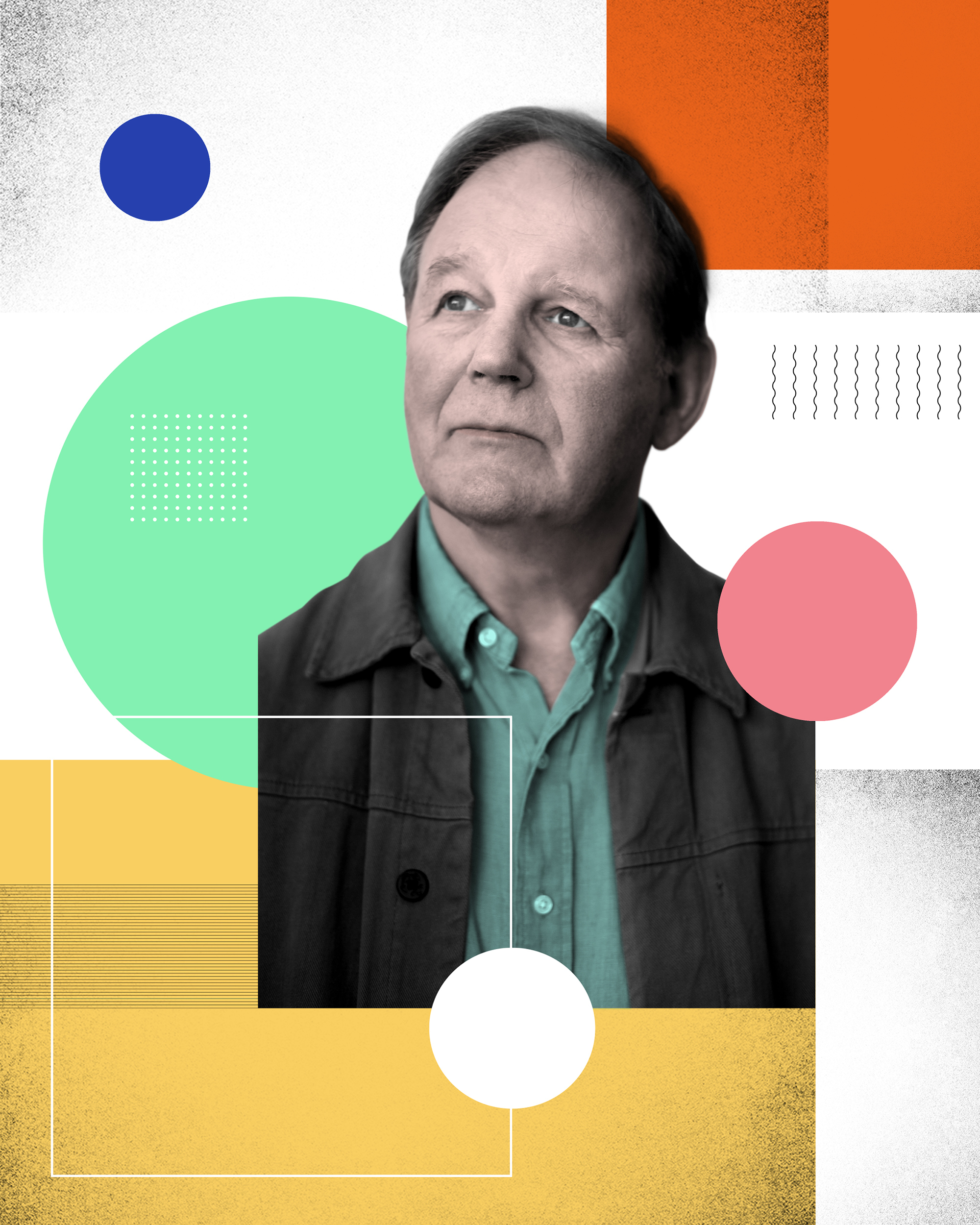- Home |
- Search Results |
- Michael Morpurgo: Time to stand and stare

I'm in an open prison. I've been inside for five weeks now. My fellow inmate – only one of them – is a good enough companion, easy to be with. We get on well enough; well, we should after 57 years. We look out into a garden where tulips grow, where a pheasant struts his stuff outside our window, where pied wagtails run about, wagging their tails, and swallows swoop over the roof and down into their nest, and a blackbird sings to me and I sing back. I watch him for hours, because I've got time; time to stand and stare, as the poem goes.
And we are allowed out of the gates once a day for half an hour for a walk. It's against the rules if you meet someone to stand and talk. But there aren't many people about anyway. Sheep, cows, deer springing away into the wood, fish rising in the river, the river where Tarka the Otter fished, where poets and writers walked – a publisher once too, who had a notion to call his books Penguins or Puffins. As we walk we can talk about them all. And about the heron and the otter tracks we've just seen, we think. So we do, often. No one else to talk to except one another, and we've said it all before. But that's all right. Doesn't stop us saying it again.
'We try not to talk about the virus with the funny name, because it's not funny'
We talk memories mostly, argue about dates and chronology, stop to look at early purple orchids and primroses. Watch the bumblebees in the sunshine and look for the buzzards up in the blazing blue, but it's too bright to see them. We know they're up there wheeling about somewhere. They're mewing at us, or maybe at one another.
We try not to talk about the virus with the funny name, because it's not funny. And because you might miss the kingfisher flashing by, or be distracted from the scent of the bluebells in the wood. It's all too easy to be distracted by this virus. It's too overwhelmingly universal to talk about, too widespread and too threatening to contemplate, too catastrophic in its consequences, and now just recently too personal.
The personal we do talk about. A man we've known in the town has died of this virus. He kept the fish-and-chip shop, was a firefighter, a good citizen, a friend. A dear cousin was taken to hospital in Sheffield a fortnight ago. It was touch and go for her. But she survived. My best friend at university is going through the illness in hospital as I write this. We think of her, talk of her, hope for her. And we being old – never knew we were until now – are cared for by neighbours, who were neighbours but who have become friends, good kind friends. We are spoilt rotten by kindness, and by great good fortune. Camaraderie, solidarity, community – the three great benefits of the virus.
'Camaraderie, solidarity, community – the three great benefits of the virus'
Others are not as lucky as we are. As we wander the fields we think of the children who would be here, should be here, but for this virus. And this is personal too. There should be 35 children from a primary school in London walking these fields, as we are, checking the lambing sheep, going to feed cows and calves with the farmer. They should be playing out in their field this evening before bedtime, or standing and staring at distant Dartmoor, before coming in for a story by the fire.
But they can’t be here, because Farms for City Children – our 45-year-old charity, with its three working farms which become countryside homes for a week, for over 100,000 city children – has had to close down. We saw the last children walking away down the lane over a month ago. That's why this virus is personal. It's driven them away. It's keeping them away. For now.
'We have to give our children the time to stand and stare, to wonder at the world that is theirs'
Somehow the charity and its supporters will get together and bring them back. We did it before when foot-and-mouth shut us down. We opened again when we could. And we will again. It will be more important than ever now. We have to give our children the time to stand and stare, to wonder at the world that is theirs, theirs to love, theirs to care for. We have in great part been responsible for making a hothouse of this world, turned need to greed and speed, taken not given. We have fire, pestilence, flood and war. All man-made. These children who cannot come to the farm this week are among those who can help put things right. Education will finally be the only way.
I think that the Penguin publisher, whose spirit walks the river with us every day, will love to see again the children enjoying his beloved Devon countryside. He'll be there with them at story time too, I reckon, especially if the book they're lying there listening to so avidly in their pyjamas, is a Puffin book.
Perspectives is a series of essays from Penguin authors offering their response to the Covid-19 crisis. A donation of £10,000 towards booksellers affected by Covid-19 has been made on behalf of the participants. Read more of the essays here.